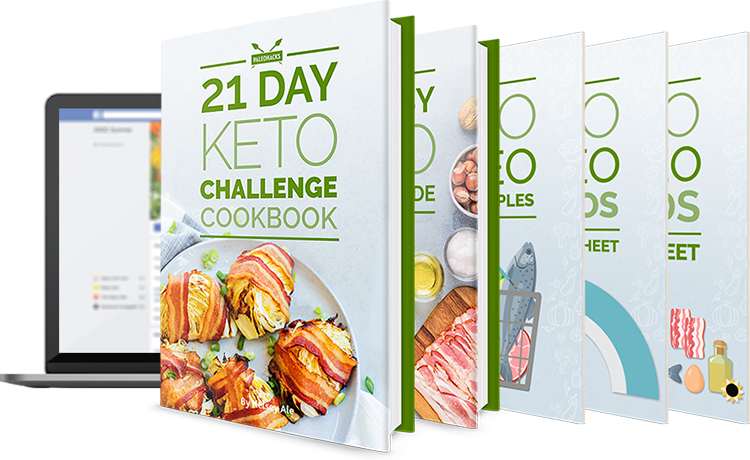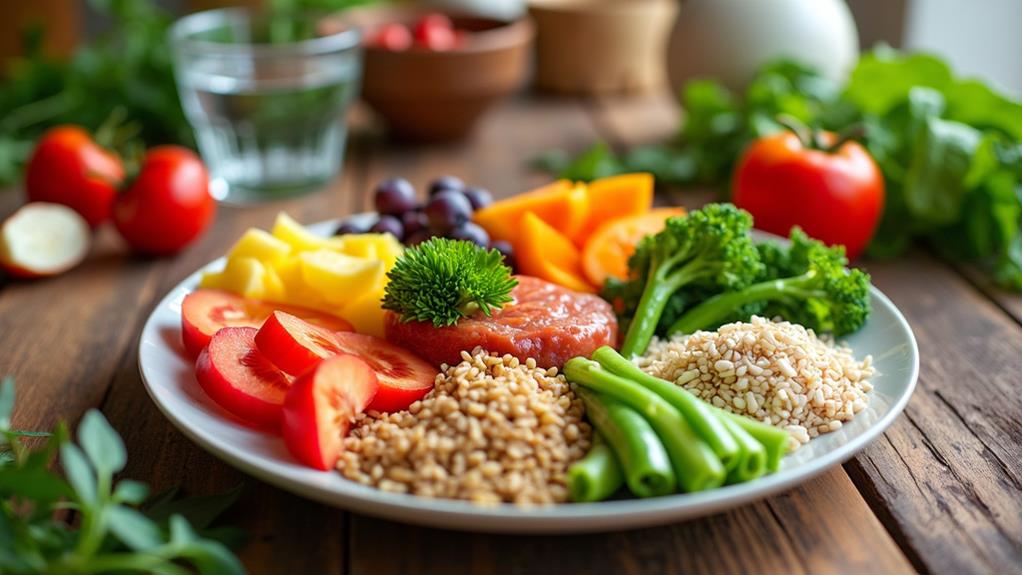When you think about a low carb diet for weight loss, you're considering a strategy that reduces your carbohydrate intake to encourage your body to burn fat for energy. This approach often involves cutting out foods like bread, pasta, and sugary treats while focusing on proteins, healthy fats, and vegetables. But how exactly does this diet work to shed those extra pounds, and what benefits and challenges might you face along the way? Let's explore the principles and practical tips that can help you successfully navigate this dietary choice.
Understanding Low Carb Diets
Low carb diets focus on reducing the intake of carbohydrates, which are found in foods like bread, pasta, and sugary snacks. By cutting down on carbs, your body is forced to use fat as its primary source of energy, leading to potential weight loss. This approach can help you avoid the spikes and crashes in blood sugar that often lead to cravings and hunger pangs.
Understanding low carb diets involves knowing that not all carbs are created equal. Simple carbs, like those in sugary snacks, are quickly digested and can cause rapid spikes in blood sugar. Complex carbs, found in whole grains and vegetables, are digested more slowly and offer sustained energy. You'll need to find a balance that works for you.
Carb cycling is another method to ponder. It involves alternating between low and high carb days to keep your metabolism guessing and prevent plateaus in weight loss. On high carb days, you can enjoy more of those complex carbs, while low carb days focus on proteins and fats. This variation can help reduce the monotony of a strict low carb regimen and keep your energy levels stable.
Benefits of Low Carb Diets
Embracing a low carb diet brings a host of benefits that can transform your health and well-being. One of the most remarkable advantages is the rapid weight loss you may experience. By cutting down on carbs, your body starts to burn fat for fuel, leading to efficient weight reduction. Keto benefits, in particular, include improved energy levels, making you feel more active throughout the day.
A low carb diet also stabilizes your blood sugar levels, which is vital for preventing energy crashes that come with high-carb meals. As a result, you'll experience better mental clarity and focus. Additionally, reducing carb intake can help lower your triglycerides and increase your good cholesterol, promoting heart health.
- Efficient Weight Loss: Switching to a low carb diet helps your body burn fat more efficiently, aiding in quicker weight loss.
- Enhanced Energy Levels: The Keto benefits include sustained energy, keeping you more active and productive.
- Better Mental Clarity: Stable blood sugar levels contribute to improved focus and cognitive function.
- Heart Health: Lowering carbs can improve your cholesterol profile, reducing the risk of heart disease.
Start reaping these benefits by embracing a low carb lifestyle today!
Foods to Include
To start reaping the benefits of a low carb diet, it's important to know which foods should be included in your daily meals. Focus on incorporating a variety of fresh vegetables and lean proteins. These foods will not only help you stay within your carb limits but also provide essential nutrients. Opt for healthy fats such as avocados, olive oil, and nuts to keep you feeling satisfied and energized throughout the day. Planning your meals in advance is one of the best lowcarb diet preparation tips, as it helps you stay on track and avoid high-carb temptations. Additionally, be sure to stay hydrated and consider adding low-carb fruits like berries for a touch of natural sweetness.
Fresh vegetables are a cornerstone of a low carb diet. Leafy greens like spinach, kale, and lettuce are excellent choices. You can also enjoy cruciferous vegetables such as broccoli, cauliflower, and Brussels sprouts. These veggies are low in carbs but high in fiber, vitamins, and minerals, making them ideal for weight loss.
Lean proteins are equally important. Opt for sources like chicken breast, turkey, and fish. These proteins are low in unhealthy fats and rich in essential amino acids, which help build and repair tissues. Don't forget eggs, another versatile and nutritious option.
Incorporating these foods can help you feel full and satisfied, reducing the temptation to reach for carb-heavy snacks. By focusing on fresh vegetables and lean proteins, you're setting yourself up for success on your low carb weight loss journey.
Foods to Avoid
When you're on a low carb diet, knowing which foods to avoid is crucial for your success. Certain items can sneak in hidden sugars and refined grains, which can derail your weight loss efforts.
- Sugary Beverages: Soft drinks, fruit juices, and sweetened teas are packed with hidden sugars, spiking your blood sugar levels and adding unnecessary carbs.
- Processed Snacks: Chips, crackers, and pretzels often contain refined grains and added sugars. These snacks are highly processed and offer little nutritional value.
- Bread and Pastries: Items like white bread, bagels, and pastries are made from refined grains. These foods quickly convert to sugar in your body, spiking insulin and promoting fat storage.
- Candy and Sweets: Obvious sources of hidden sugars include candies, cookies, and cakes. These treats can sabotage your low carb diet by adding empty calories and carbs.
Sample Meal Plan
If you're committed to a low carb diet, having a well-structured meal plan can make all the difference in achieving your weight loss goals. Start your day with a protein-packed breakfast like scrambled eggs with spinach and avocado. This combination keeps you full and energized. For lunch, consider a grilled chicken salad with leafy greens, cherry tomatoes, and a light vinaigrette. The key is to avoid starchy vegetables and focus on low-carb, nutrient-dense options.
Incorporating meal prep into your routine can save you time and guarantee you always have healthy options on hand. For dinner, opt for baked salmon with a side of asparagus or cauliflower rice. These meals are not only low in carbs but also rich in essential nutrients.
When it comes to snack ideas, think beyond typical carb-heavy options. Almonds, cheese sticks, and Greek yogurt with a handful of berries are excellent choices. They're easy to prepare and perfect for curbing hunger between meals.
Common Mistakes
Traveling a low carb diet can be tricky, and many people fall into common pitfalls that hinder their progress. One major issue is carb confusion, where you might not accurately track your carbohydrate intake. This can lead to consuming more carbs than intended, stalling weight loss efforts. Let's explore four common mistakes to avoid:
- Not Counting Hidden Carbs: Many foods, especially processed ones, have hidden carbs. Failing to read labels carefully can result in unintentional carb consumption.
- Overeating Protein: While protein is essential, too much can be converted into glucose by the body, impacting ketosis. Balance your protein intake to avoid this diet pitfall.
- Neglecting Fiber: Fiber is vital for digestive health and can help you feel full. Many people on low carb diets ignore fiber-rich foods, leading to digestive issues and hunger pangs.
- Ignoring Nutrient Balance: Focusing only on reducing carbs while neglecting other nutrients is a mistake. Confirm you're getting essential vitamins and minerals to maintain overall health.
Tips for Success
Achieving success with a low carb diet requires both planning and commitment. Mindful planning is your first step. Start by researching low carb foods and creating a weekly meal plan. This helps you stay on track and avoid impulsive eating. Stock your pantry with staples like lean proteins, healthy fats, and low-carb vegetables. Having these items readily available makes it easier to prepare nutritious meals quickly.
Next, focus on habit formation. Consistency is vital. Set specific goals, like eating a low carb breakfast every day or sticking to your meal plan for a week. These small, achievable targets can build momentum and create lasting habits. Track your progress using a journal or an app, which can help you stay motivated and identify areas for improvement.
Don't forget to stay hydrated and get enough sleep, as both play a significant role in weight loss. Water helps you feel full and energized, while adequate rest supports your metabolism and reduces cravings.
Lastly, be patient with yourself. It takes time to develop new habits and see results. Celebrate your successes, no matter how small, and keep pushing forward. With mindful planning and consistent habit formation, you'll be well on your way to achieving your weight loss goals.
At a Glance
A low carb diet can be your key to effective weight loss. By cutting out carb-heavy foods and focusing on proteins, healthy fats, and veggies, you'll boost energy and mental clarity. Avoid common mistakes, keep your meals varied, and don't forget to include carb cycling to shake things up. Stick to the plan, and you'll see results. Now, it's time to take control of your health and enjoy the benefits of a low carb lifestyle!





